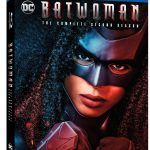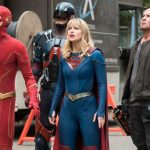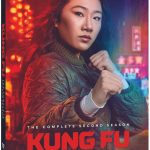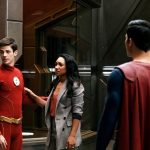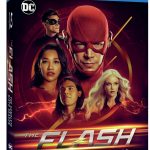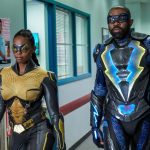Supergirl’s Azie Tesfai Gives Guardian a New ‘Fit’
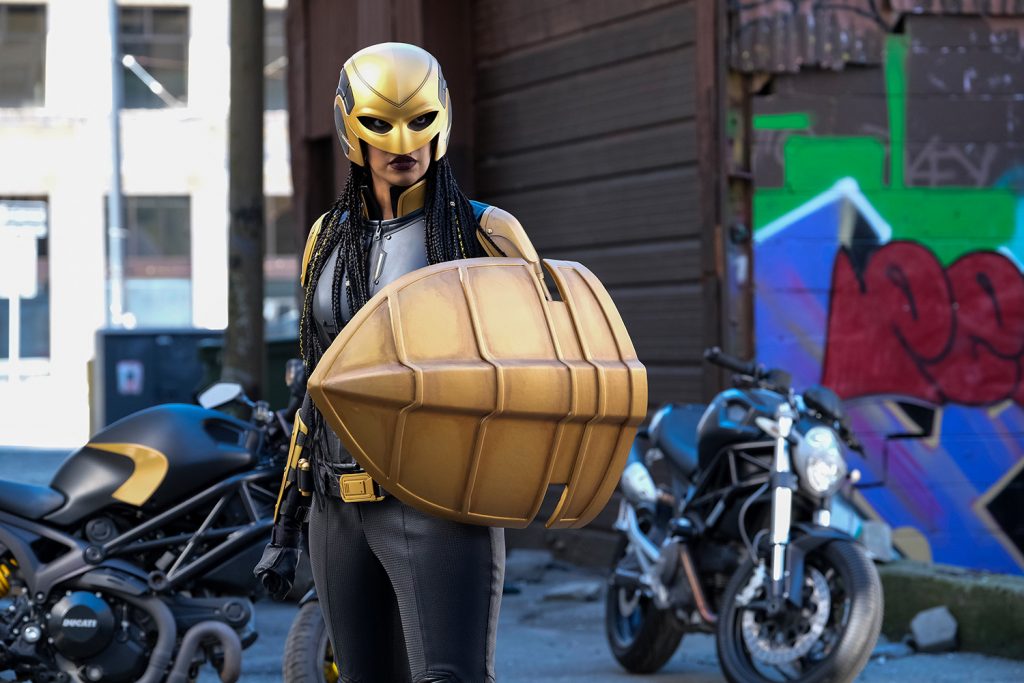
In its final season, the CW’s Supergirl is taking no prisoners with pointed storylines and overarching themes. For the first time ever in Arrowverse history, an actor – Azie Tesfai – has penned an episode dealing with racial discrimination and the blind eyes that are turned to it.
In the episode, ‘Blind Spots’, a strange illness has befallen citizens in the low income (read: urban) section of town called “The Heights”. A corrupt politician gets access to an otherworldly havoc and wields it at the expense of her less than fortunate constituents. As she wreaks said havoc, Supergirl and the other Superfriends are busy fighting Myx, the season’s big bad. Kelly Olsen (Tesfai) understands the need to take down Myx, but she also needs to help the people who need it now. And she knows she needs help to do it. Kelly often proclaims how weary she is throughout the episode and we see this exhaustion exacerbate as her friends, loved ones and heroes let her down. Though her spirit dwindles, the problems of the community only get larger and spur Kelly to become the very hero she was searching for.
Playing Kelly Olsen (Jimmy Olson’s sister), Tesfai stumbled onto an opportunity that allowed her to write her debut as Guardian and a script that helped give dramatic presence to some prevalent social issues. I had the pleasure of chatting with Tesfai over Zoom about the road she took to writing the powerful episode “Blind Spots” and the lessons she hopes are learned.
The Geekiary: How did the opportunity to write a Supergirl episode come about and did you know you’d be writing this one?
Tesfai: During the break over the pandemic I’d written a sample script of a different storyline that I wanted to explore with the character. I was going to explore a storyline featuring PTSD in vets which would connect back to [Kelly’s] military past. When we found out it was the last season, it got restructured and they approved my script! That’s all I knew, I had no idea that I was going to write me becoming a superhero or any of that.
That sounds so exciting!
Tesfai: Yeah! Once it became crystalized, I joined the writers room. I had about three or four episodes off and I went in for just over a month. I did the 9 to 5 writers room thing every day. We broke down the entire arc because it was important to us to not be a single episode, but for it to be a story that’s going to continue.
You cited downtime in the pandemic, but had you always wanted to write?
Tesfai: I’d been writing before and I had a show that I was developing with a showrunner. I feel really passionate about [Kelly]. The character is a Black, queer woman who’s becoming a superhero. I felt very protective over her voice and wanted to make sure that the story was told in a way that honored not just her, but our fans that see themselves in her. I jumped at the chance to do it because I knew I would fight tooth and nail to make sure these stories were handled properly.
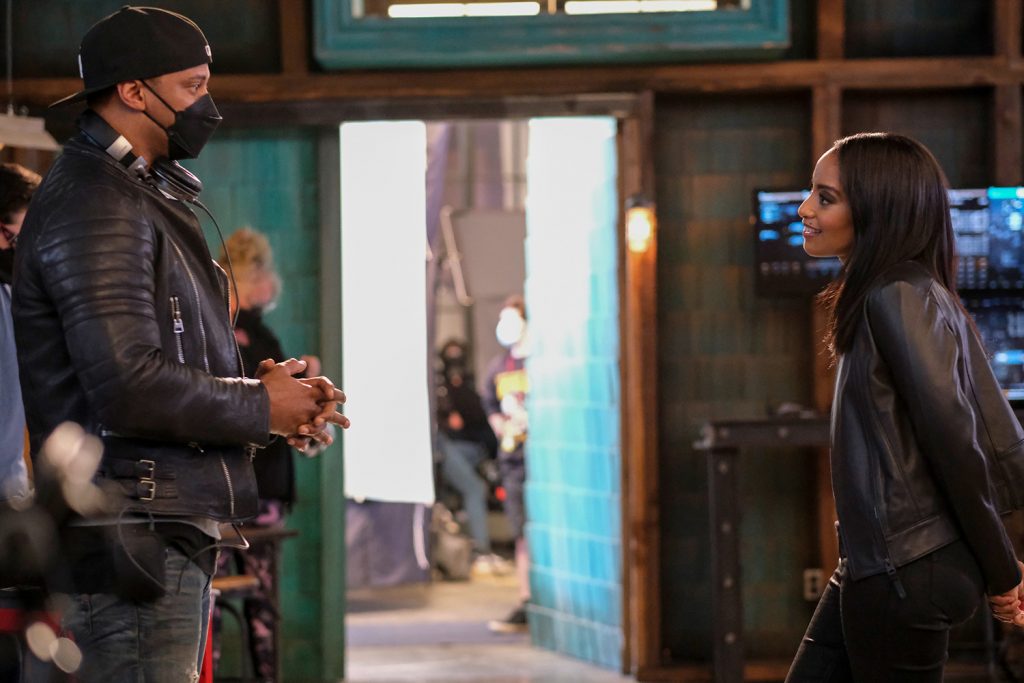
There’s a specific line I wanted to talk to you about said by David Harewood who plays J’onn. He says when he came to Earth it was as a Martian and he chose the skin he was in [that of a Black man] because it was what made him feel most alien on the planet. There’s layers on layers on layers in that statement. Tell me about the process of coming to that kind of revelation.
Tesfai: When I knew I had David Harewood as a guest, I knew it would be the catalyst to help the character find her journey. Because J’onn is an alien, it was two-fold. I first ask ‘why?’, like, why does he choose to be a Black man every day? He can change. I don’t know anyone that would continue to make that decision every single day with all that we deal with. There’s never any moments where he says, ‘today I want to be a blonde guy with blue eyes!’, he never has that. I realized we haven’t addressed that and I think it’s important to acknowledge that the one character on our show that can pick what he wants to look like chooses to be a Black man in this country.
And the second fold?
Tesfai: The twofold is the actor who plays J’onn is English and his experience in the nuance of being a Black English man in America – where he feels like part of him is part of this culture – is different because he’s not African American. [Harewood] called me pre-shoot and said he very much felt the experience in himself being from another country, but someone racist is just going to think he’s a Black American, despite his not having the African American history of experience. So the beautiful thing with having so many Black actors in the episode is we can tell many different perspectives. It felt really personal to David and we also got to address the elephant in the room.
It was like a punch in the gut, in the way that points to the blind spots we’ve been discussing. It’s something that no one really considered to that point, because when you ask the question, you have to be ready to deal with the ramifications of that answer.
Tesfai: I’ve been asked about [the timeliness] of the episode because we shot this a while ago, but I was never worried about it. These topics and this episode addressing them isn’t something that started just last summer. And I think the rest of the world is understanding now that this is something that needs attention. I think people are uncomfortable with seeing other people’s pain and they don’t know how to deal with it which is why there are so many uncomfortable scenes in this episode. While it’s something that’s important to the storytelling, we didn’t’ want it to feel like it’s for other people, which feels like it’s being exploitative. Blind Spots shouldn’t be an after-school special, or one-off episode. Which is why it was important to write our guests and intentional confirmations through the rest of the season.
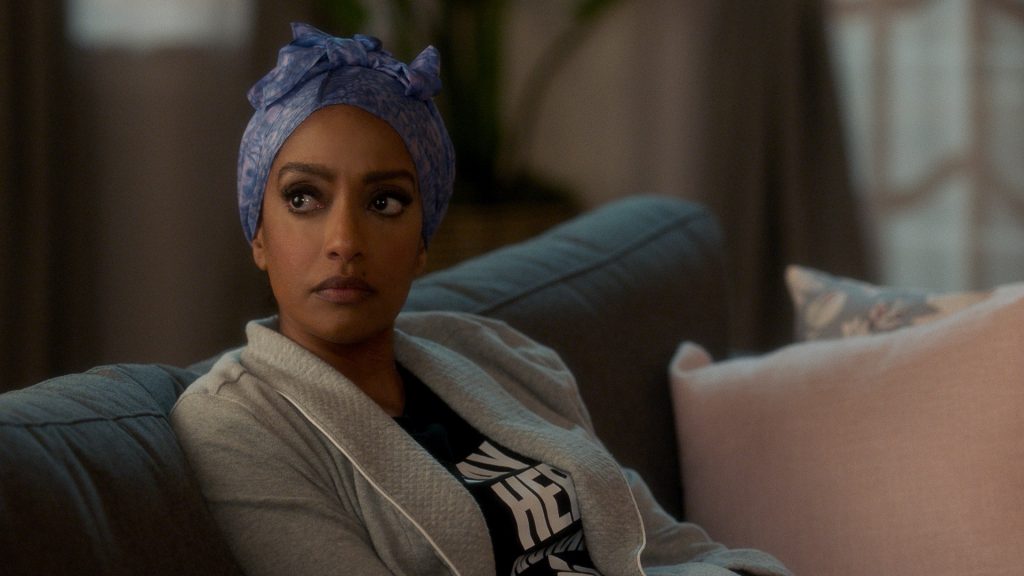
I love the little cultural signifiers in the episode, the putting on of the scarf at the end of the night and the braids on Guardian’s costume.
Tesfai: Yes! Once we got the approval that we could logistically do the half helmet – which is a nod to the comic books – I was like, she’s visibly a Black woman so we should lean into that. I wanted long braids and we did that and since I’m East African I added little gold accents as a nod to my personal culture. It was important to put in these subtle representations that familiarize people with Blackness. It’s humanizing.
And it makes it relatable. I thought a lot about the way the other shows in the Arrowverse are going to react and I do hope that this episode acts as a catalyst for more diversity in the writing rooms and more diverse stories are told.
Tesfai: It’s not just having diversity in the writers room, but it’s having people who are diverse at levels of powerful positions. I came in as an actor so I had no fear in my voice. I spoke up and I felt security in the fact that I was one of the regulars on the show. But if you’re not, if you don’t have diverse producers, Co-VP’s, those at the studio level when you’re doing notes calls, all that matters so much. It isn’t just hiring, It’s making sure they’re in a title position where they have power.
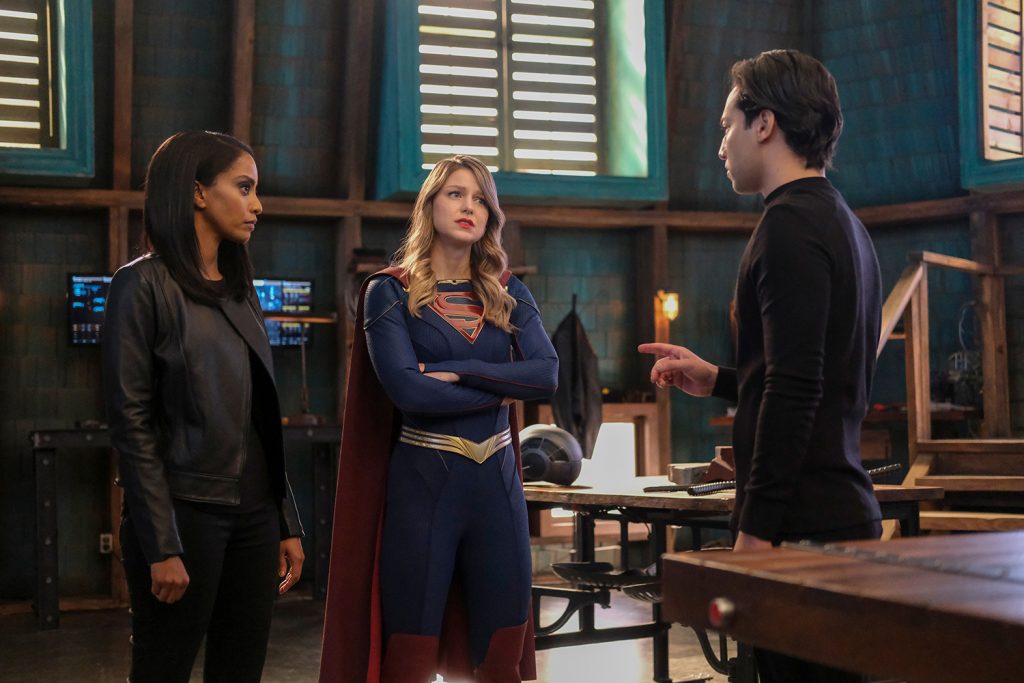
Tesfai (here’s her Insta) has written a thought-provoking and discussion-worthy episode that sheds light on the blind spots and people who can often go overlooked in National City. ‘Blind Spots’ aired on September 21, 2021, and is episode 12 in Supergirl season 6. It is currently streaming on the CW app. Supergirl airs Tuesdays on the CW.
Author: StickyKeys
Help support independent journalism. Subscribe to our Patreon.
Copyright © The Geekiary
Do not copy our content in whole to other websites. If you are reading this anywhere besides TheGeekiary.com, it has been stolen.Read our

